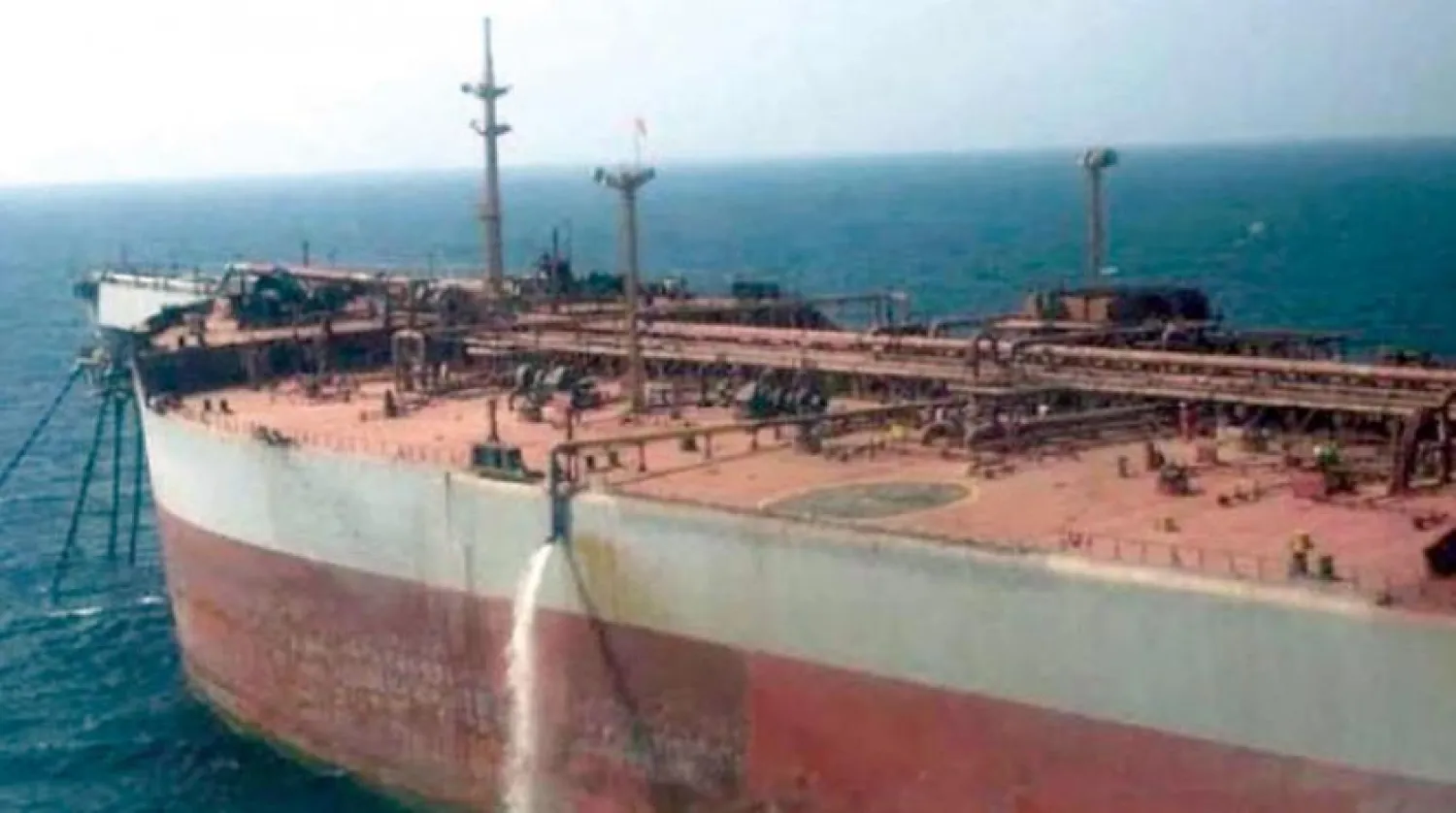The tragedy witnessed by the Lebanese capital Beirut due to the explosion of dangerous material stored in the port of the city raised the fears of Yemenis of a similar disaster taking place in the port of Ras Isa, north of the city of Hodeidah.
Fears are amplified in light of Houthi militias continuing to prevent United Nations teams from accessing and maintaining the derelict oil tanker, Safer.
Government and international reports predicted that an explosion at Safer, an oil tanker which is carrying around 1.2 million oil barrels, could lead to a disaster and the shutting down of the Hodeidah port.
Hodeidah port is the entry gate for some 70% of imports to Yemen. More so, the environmental impact of an explosion at Safer will take around three decades to resolve.
Yemeni political activists, who spoke to Asharq Al-Awsat, tied the major destruction caused by the Beirut port blast to the potential disaster at Safer, where corrosion in the platform’s hull has allowed seawater to spill into parts of the tanker.
“The similarity lies in the neglect of the Houthi militia, like the Hezbollah militia in Lebanon, and the result would be staggering losses that affect both Yemen and Lebanon, countries which have the problem of terror gangs controlled by Tehran,” said the undersecretary of the Ministry of Information in the Yemeni government Abdul Basit Al-Qaidi.
“Wherever Iran's militia lands in the region, disaster strikes, and the disaster of the explosion of the Safer oil tanker in the Red Sea is no less dangerous than the Beirut explosion, and its effects will be more like the effects that a nuclear bomb could leave and require decades to deal with if it exploded,” he added.
Al-Qaidi warned of the international community neglecting the Safer dilemma and said that Houthis aren’t only being neglectful of the problem at hand but are also dealing with it with malicious intent.









